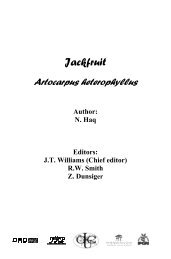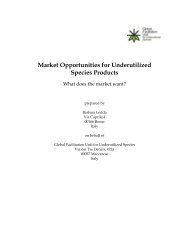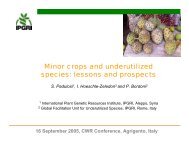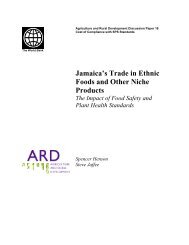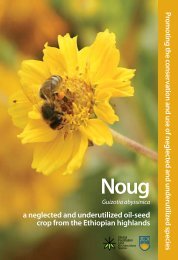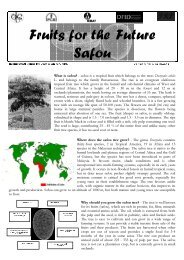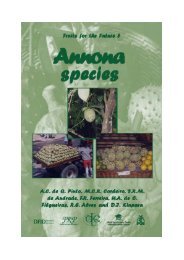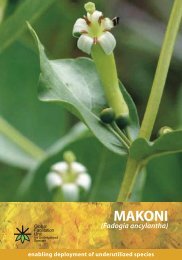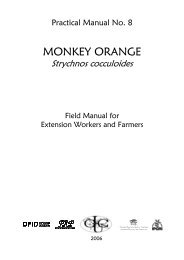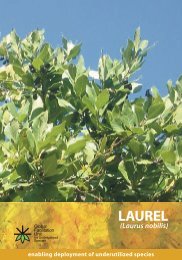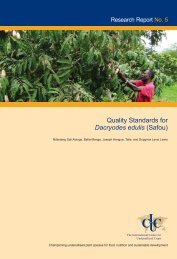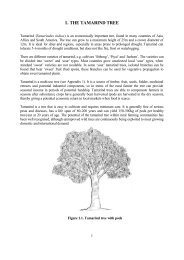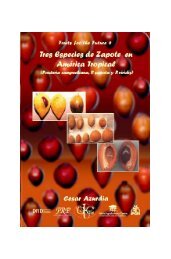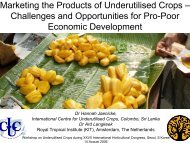Strychnos 1990 - 2004 - Crops for the Future
Strychnos 1990 - 2004 - Crops for the Future
Strychnos 1990 - 2004 - Crops for the Future
Create successful ePaper yourself
Turn your PDF publications into a flip-book with our unique Google optimized e-Paper software.
Author<br />
Title<br />
Year<br />
Source title<br />
Reference<br />
Abstract<br />
Cheng, M. J., I. L. Tsai and I. S. Chen<br />
Chemical constituents from <strong>Strychnos</strong> cathayensis<br />
2001<br />
Journal of <strong>the</strong> Chinese Chemical Society Taipei<br />
48(2): 235-240<br />
-<br />
Author<br />
Title<br />
Year<br />
Source title<br />
Reference<br />
Abstract<br />
Frederich, M., M. C. De Pauw, C. Prosperi, M. Tits, V. Brandt, J. Penelle, M. P.<br />
Strychnogucines a' and b, two new antiplasmodial bisindole alkaloids from Strych<br />
2001<br />
Journal of Natural Products<br />
64(1): 12-16<br />
-<br />
Author<br />
Title<br />
Year<br />
Source title<br />
Reference<br />
Frederich, M., M. P. Hayette, M. Tits, P. De Mol and L. Angenot<br />
Reversal of chloroquine and mefloquine resistance in Plasmodium falciparum by t<br />
2001<br />
Planta Medica<br />
67(6): 523-527<br />
Abstract<br />
Eight naturally occurring monoindole alkaloids were evaluated in vitro <strong>for</strong> <strong>the</strong>ir ability to inhibit<br />
Plasmodium falciparum growth and, in drug combination, to reverse <strong>the</strong> resistance of a chloroquineresistant<br />
strain of Plasmodium falciparum. None of <strong>the</strong>se indole alkaloids has significant intrinsic<br />
antiplasmodial activity (IC50 > 10 muM or 5 mug/ml). Never<strong>the</strong>less, three alkaloids (icajine,<br />
isoretuline and strychnobrasiline) did reverse chloroquine resistance at concentrations between 2.5<br />
and 25.4 g/ml (IF of 12.82 <strong>for</strong> isoretuline on W2 strain). The Interaction Factor (IF) equals 2, < 2, or<br />
> 2 <strong>for</strong> additive, antagonistic or synergistic effects of alkaloids on chloroquine inhibition,<br />
respectively. Icajine and isoretuline were also assessed in vitro <strong>for</strong> <strong>the</strong>ir mefloquine potentiating<br />
activity on a mefloquine-resistant strain of Plasmodium falciparum. Only icajine proved to be<br />
s y n e r g i s t i c w i t h m e f l o q u i n e ( I F = 1 5 . 3 8 ) .



